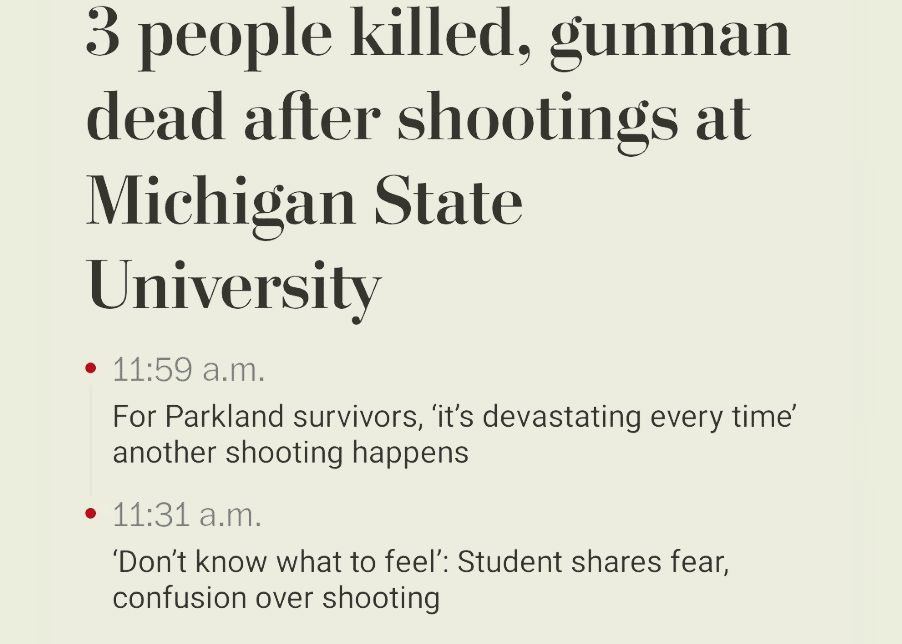And so it goes on and on …
 Photo & Clipping Credit: Washington Post website
Photo & Clipping Credit: Washington Post websiteAnd so it goes on and on and on …
But private gun ownership with minimal checks and controls remains a sacred right protected by a particular reading of the Second Amendment to the U.S. Constitution:
A well regulated Militia, being necessary to the security of a free State, the right of the people to keep and bear Arms, shall not be infringed.
The right to keep and bear arms is here clearly linked to the citizens being organized as a militia. But for some reasons otherwise rational Americans ignore this and insist that every Tom, Dick, and Harry should be able to walk into a store and buy not just a pistol or a hunting rifle but a machine gun or assault rifle.
An American friend told me that as a European I do not understand that. For a long time I thought I did, but with every incident like this I my understanding wanes.
Some folks tell me that without the right to bear arms the U.S. would still be under the British Crown1. But for this to hold true, for freedom-loving citizens to rise up against a despotic government and actually prevail, you would also need private ownership of tanks, fighter jets, war ships – the full arsenal of modern warfare. Ludicrous!
What is most difficult for me to wrap my head around is that many of the people who put forth such (unpersuasive) arguments for this particular interpretation of the Second Amendment are all evangelical Christians, followers of the Prince of Peace, quite a few of whom have served as missionaries in Europe. What a testimony! Unbelievable!
So we can look forward to more such incidents in 2023, an uninterrupted stream fom 2022 and years past.
When our application to stay on in the U.S. long term was denied in 1989, it was with disappointment and regret that we returned to Austria. It pains me to say so, but today I am so relieved and thankful that we are no longer in that hopelessly polarized and divided country and that our kids grew up without only a minimal threat of a shooter going on a rampage in their school.
__________- Not that this would be so much worse than the current political situation, especially in the past seven years, with no end in sight![↩]

 Well, for me one of these would be the sounds of
Well, for me one of these would be the sounds of 